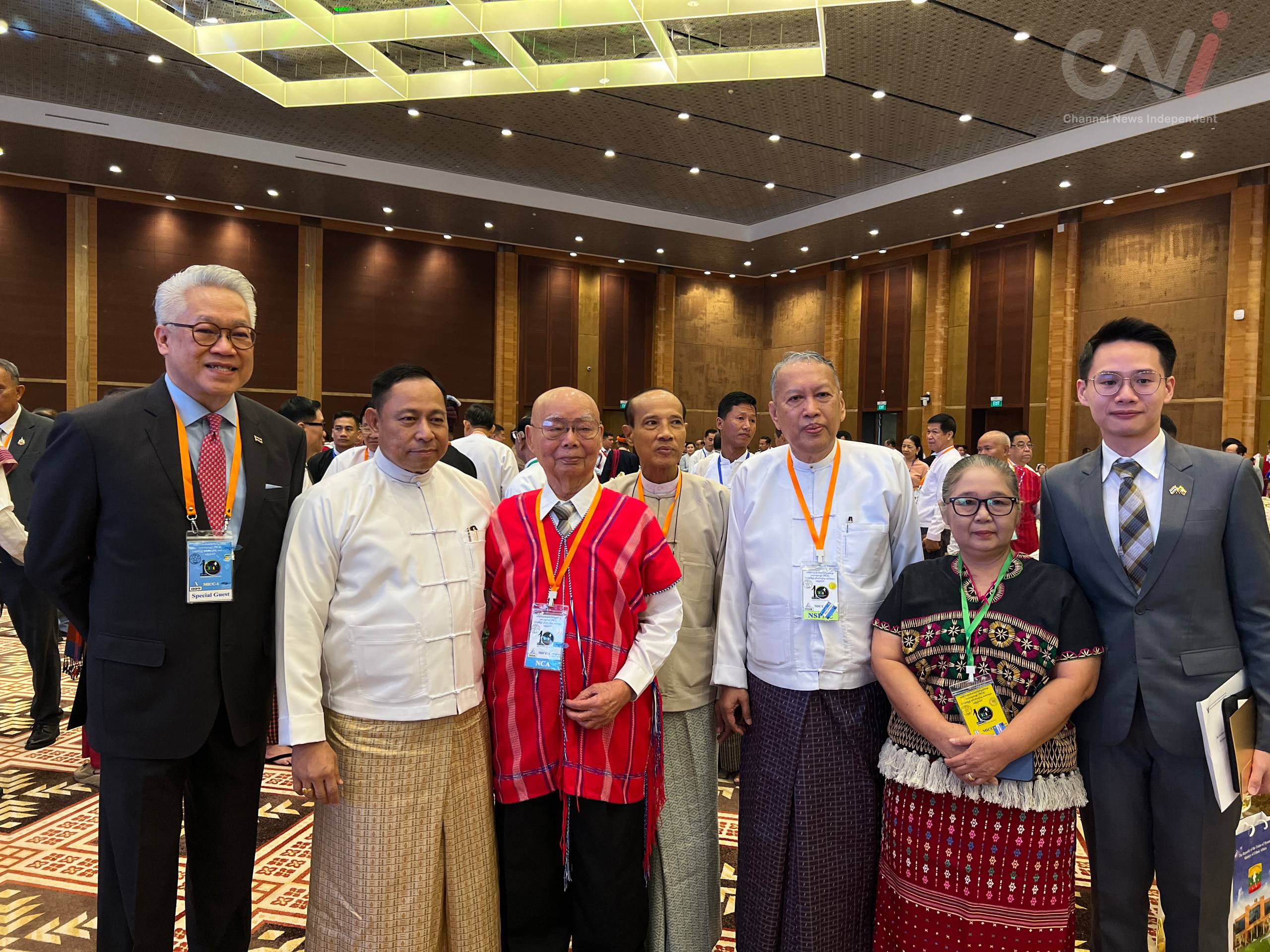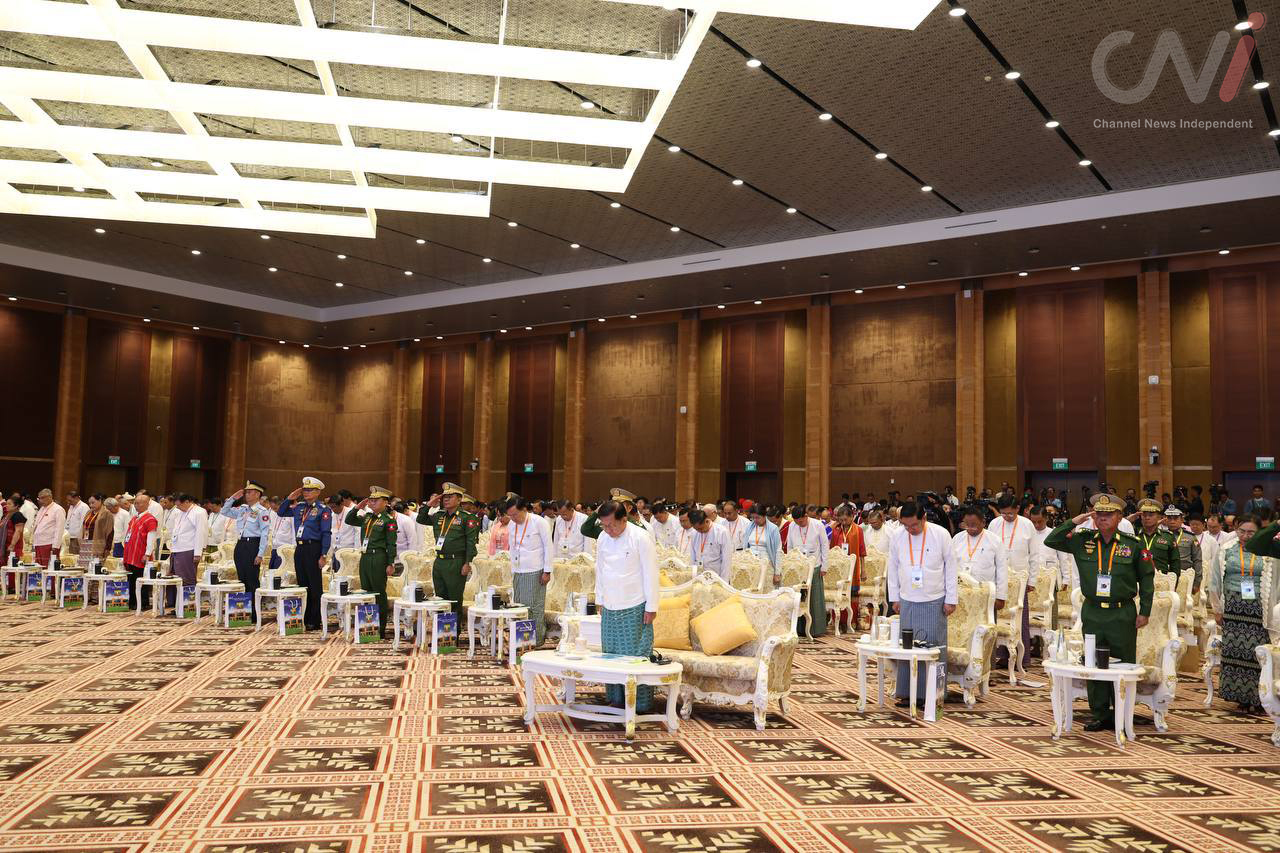CNI News
31 October 2025
As Myanmar’s civil war continues to drag on, achieving peace will only become more distant, said Sai Htay Aung, Chairman of the Tai Leng (Shanni) Nationalities Development Party (TNDP), to CNI News.
He explained that if all armed groups put the nation’s interests first and learn lessons from the past, peace could still be attainable.
Political analysts also noted that within ongoing peace processes, there are many differing views, thoughts, and approaches being taken.
Sai Htay Aung emphasized that “the longer the civil war lasts, the harder it will be to achieve peace. But if we can learn lessons from past experiences, peace can be achieved more quickly. Right now, the number of armed groups keeps increasing. We need to reflect on why that is happening. When one side uses the force of arms to dominate, others respond by taking up arms themselves — and that cycle keeps multiplying the number of armed groups. Every new armed group formed adds another burden on the people.

Those who attended the NCA anniversary ceremony
For example, if we look at the KIA and SNA — the KIA used armed force and oppressed the Shan majority population. When that happened, and cooperation with the Tatmadaw (Myanmar military) was ineffective, another armed group — the SNA — was formed to counter them. That’s why I say the longer the civil war goes on, the further peace will be. But if all armed groups act selflessly, put the nation first, and learn from the past, peace can be achieved sooner,” said.
Armed conflicts in Myanmar have existed since the country’s independence in 1948 and continue to this day.
Efforts to achieve peace have taken many forms — exchanging arms for peace, arms for economic gains, and even building peace while keeping arms.
Outside the electoral process, armed conflicts continue to persist. However, U Ko Ko Gyi, Chairman of the People’s Party (PP), told CNI News that once ethnic representatives enter parliament after the election, peace processes could become more representative.
“Elections cannot solve all problems politically, but they can open the path to solutions. Armed struggle has proven ineffective — past experiences have shown that.

Those who attended the NCA anniversary ceremony
In previous elections, armed conflicts continued outside the electoral system. Therefore, we must continue engaging in dialogue with armed forces, review the Nationwide Ceasefire Agreement (NCA), and work to revitalize it. Elections also bring political representation, which makes dialogue more inclusive and stronger.Currently, the Tatmadaw leads and makes decisions in the peace process. After the election, ethnic representatives and democratic forces will also participate, making peace efforts broader and more inclusive,” he said.
Myanmar’s first phase of the general election is scheduled for December 28, 2025, across 102 townships. The second phase will be held in January 2026, covering another 100 townships.
However, analysts note that public trust and interest in the upcoming election are low, as previous election results were annulled on grounds of alleged voter list disputes.
Currently, 10 armed groups have signed the Nationwide Ceasefire Agreement (NCA), but CNF, ABSDF, and KNU have withdrawn, effectively rendering the agreement void.
Fighting continues between the Myanmar military and these former NCA signatories, as well as with non-signatories such as the KIA, TNLA, AA, and MNDAA.
Additionally, since the military coup on February 1, 2021, clashes have erupted with hundreds of newly formed People’s Defense Forces (PDFs) nationwide.




